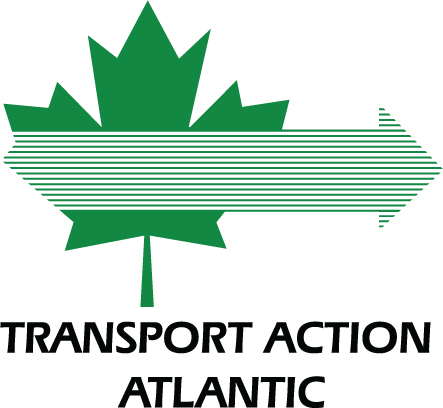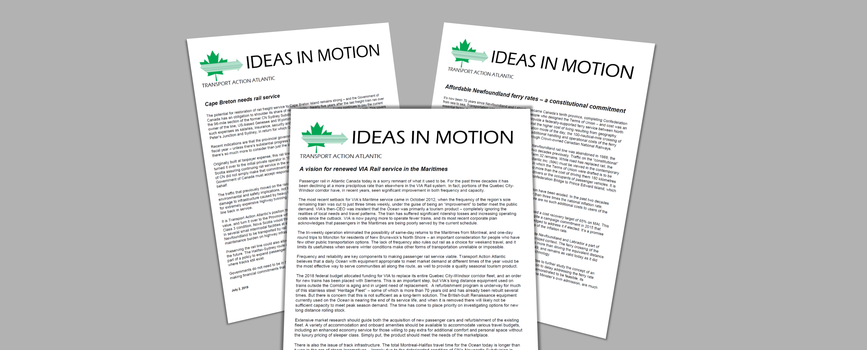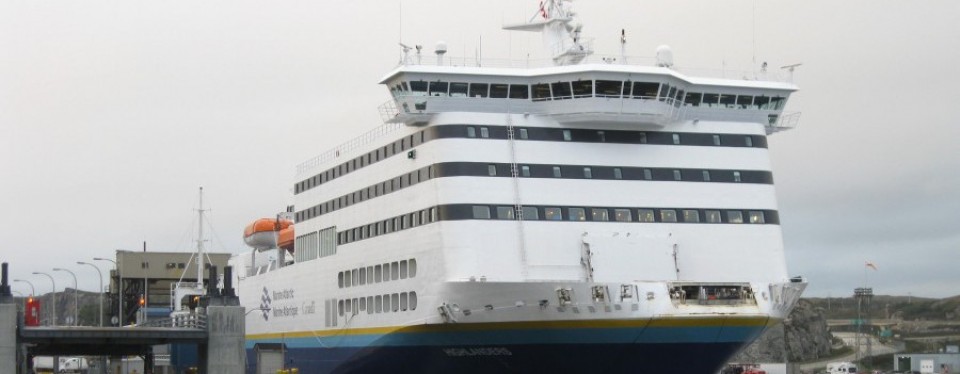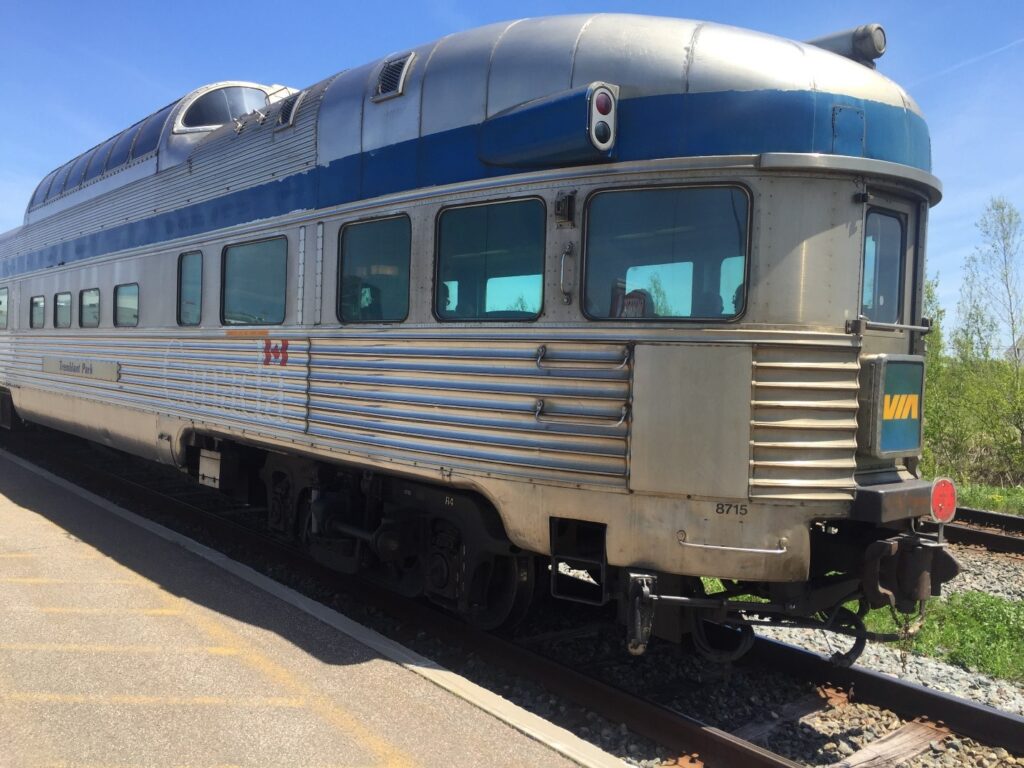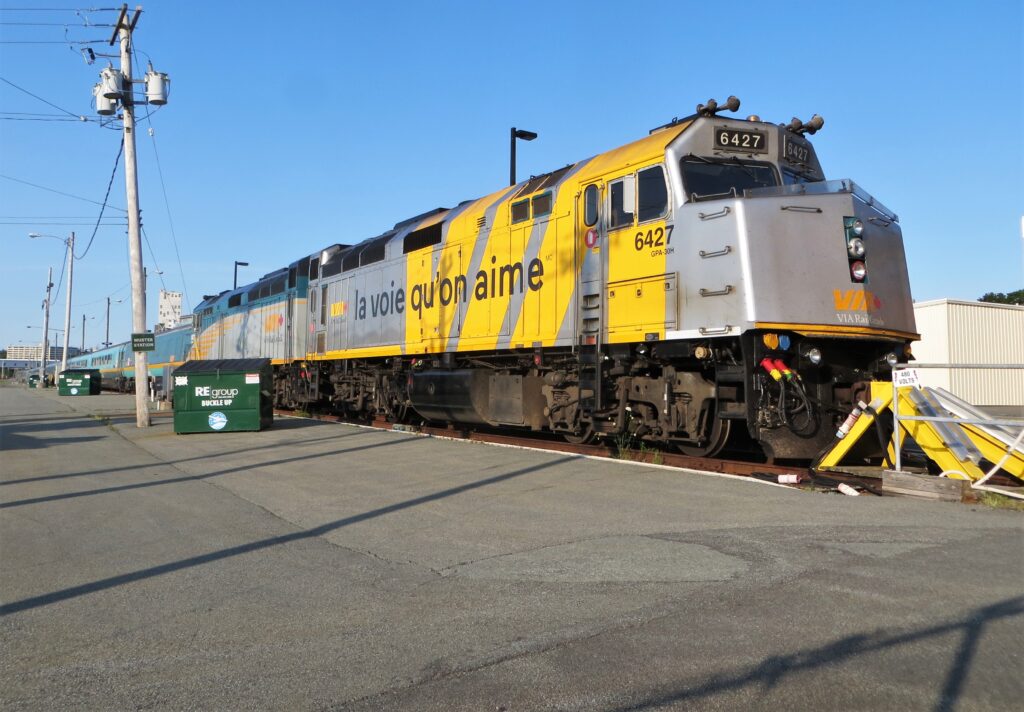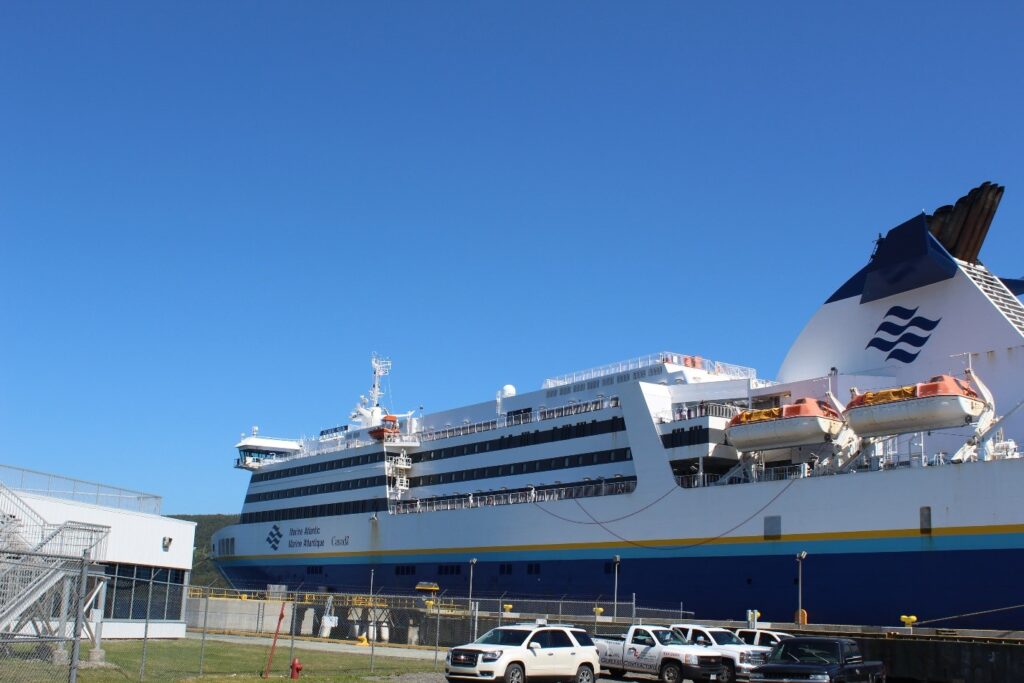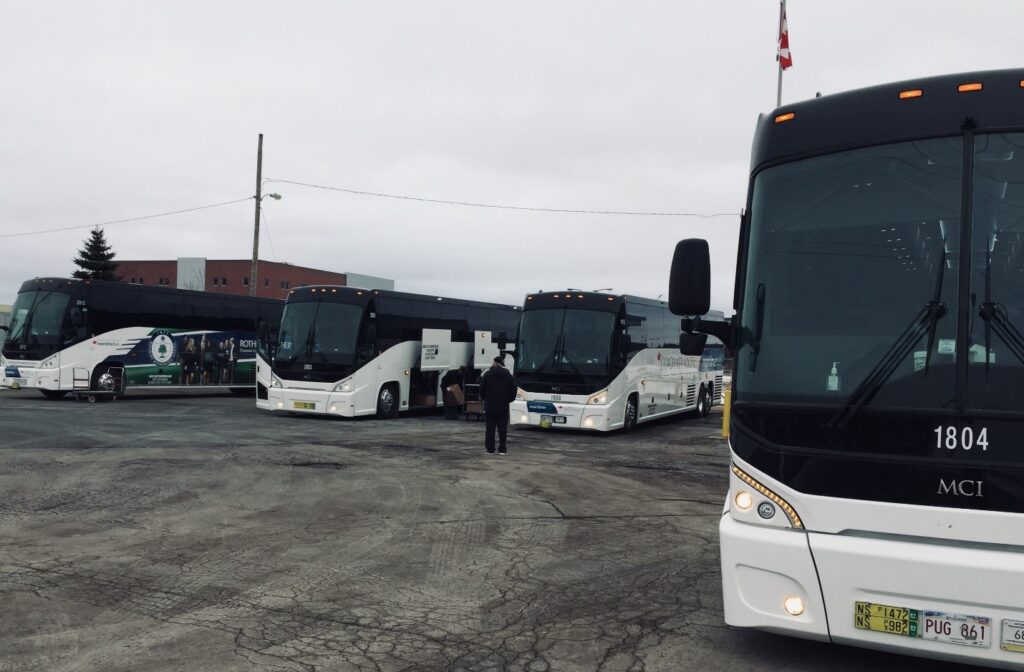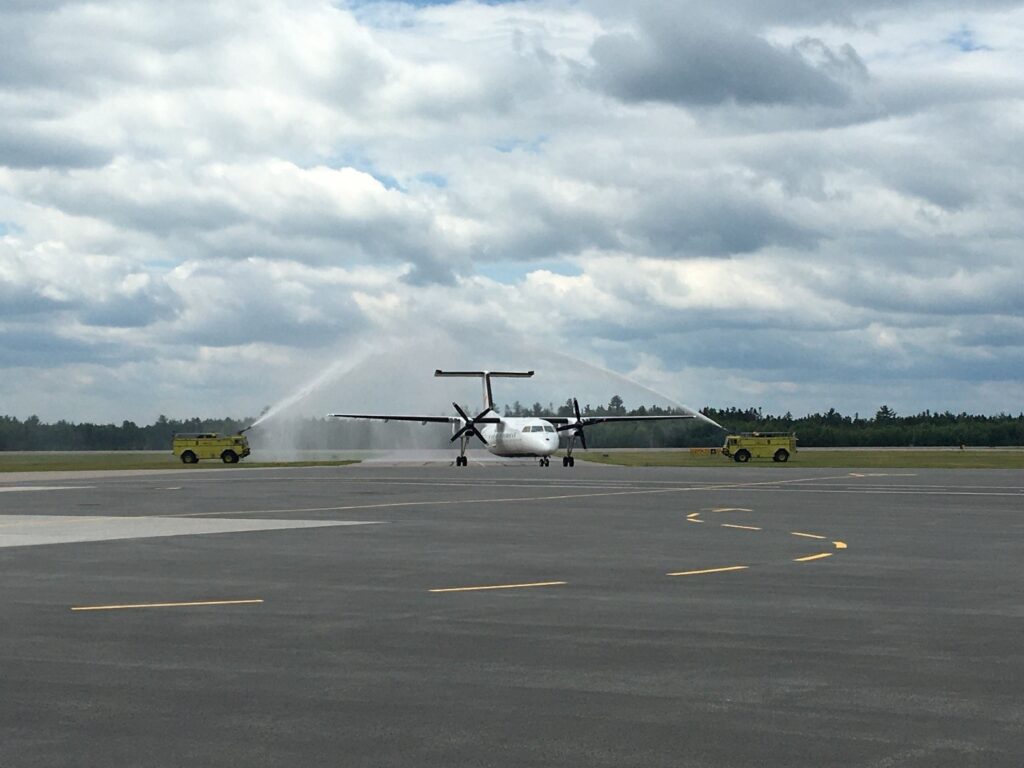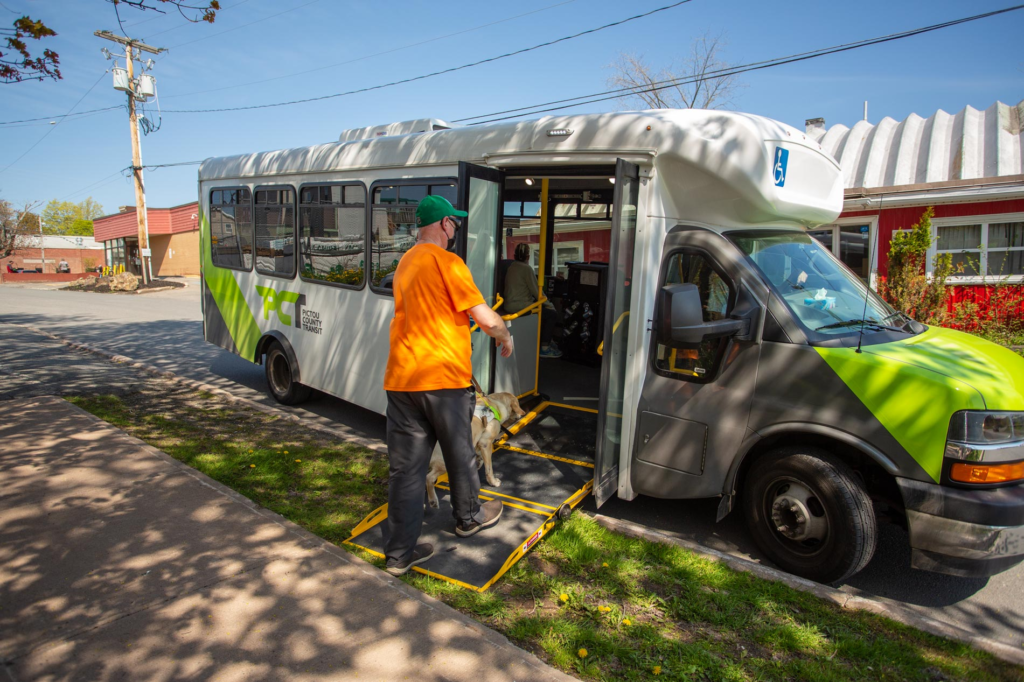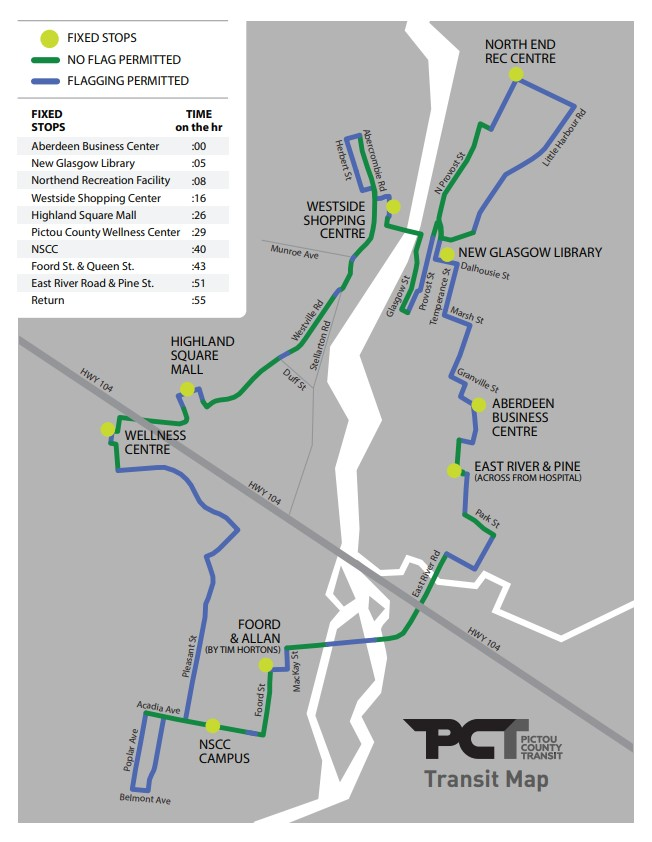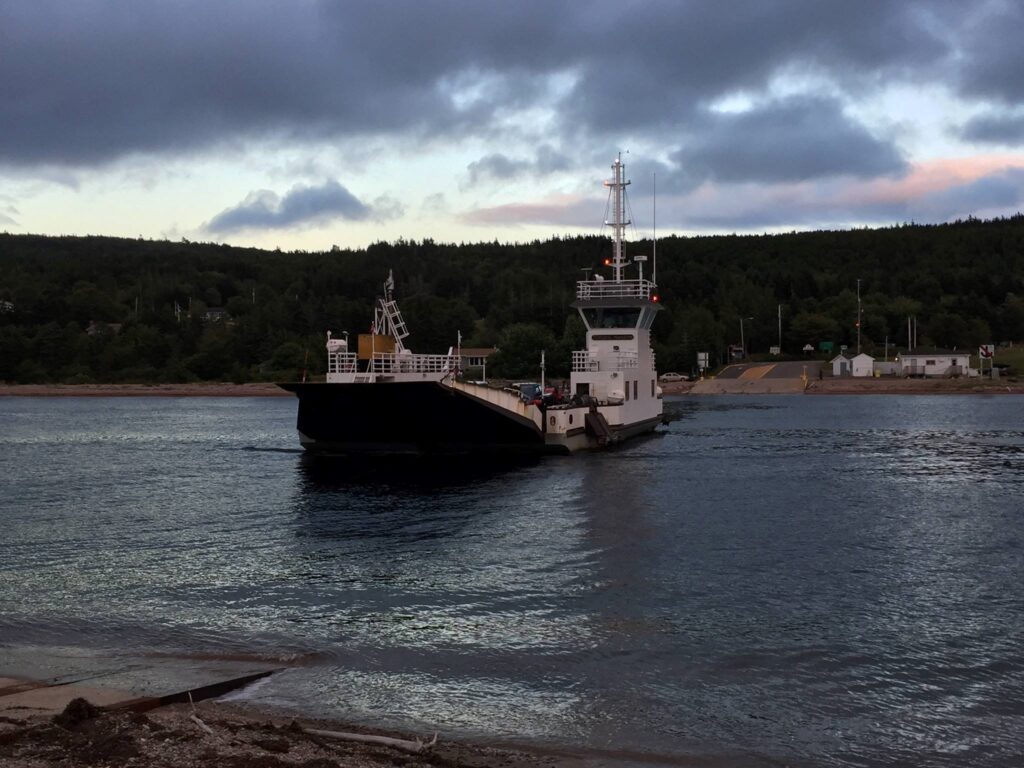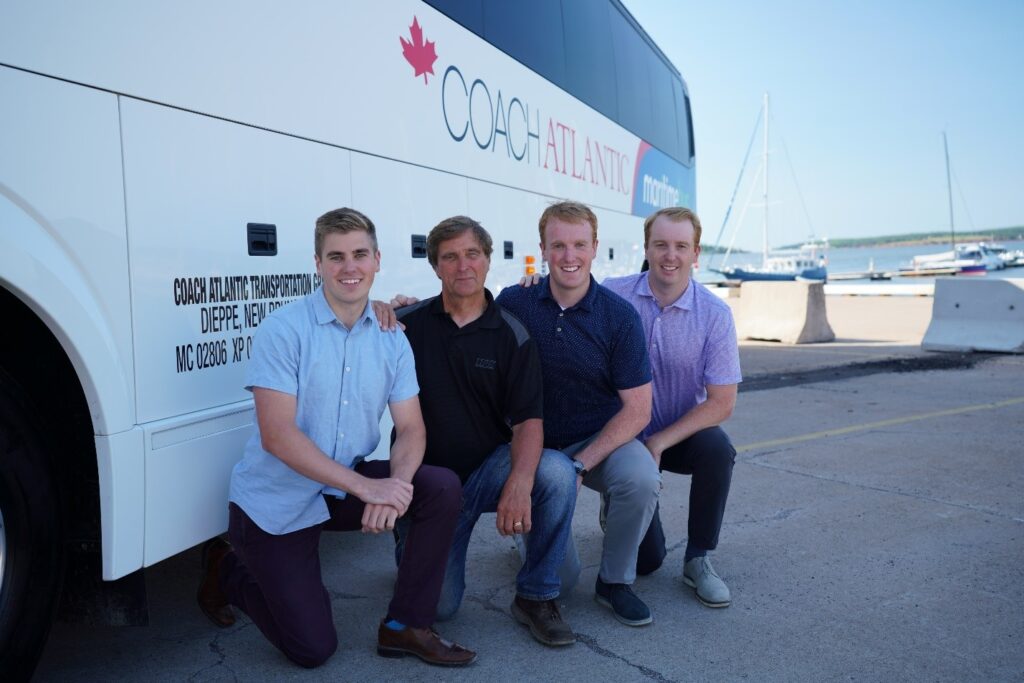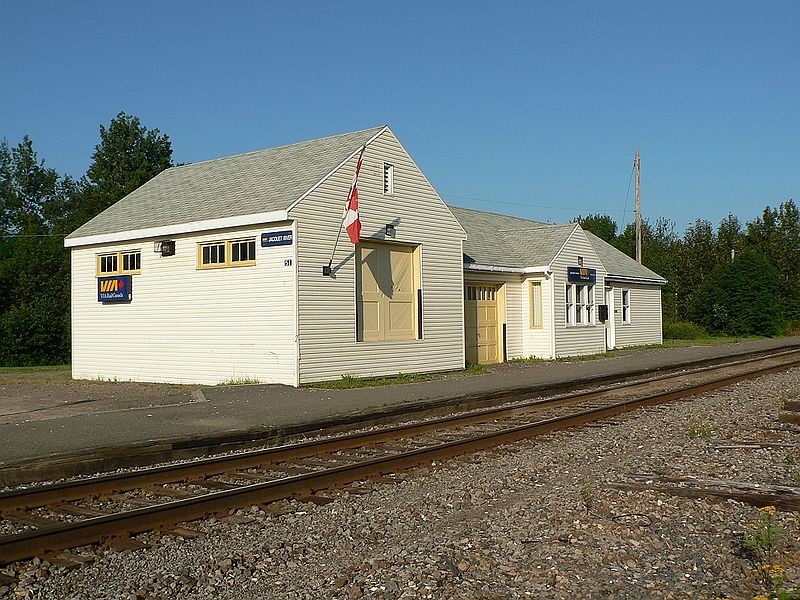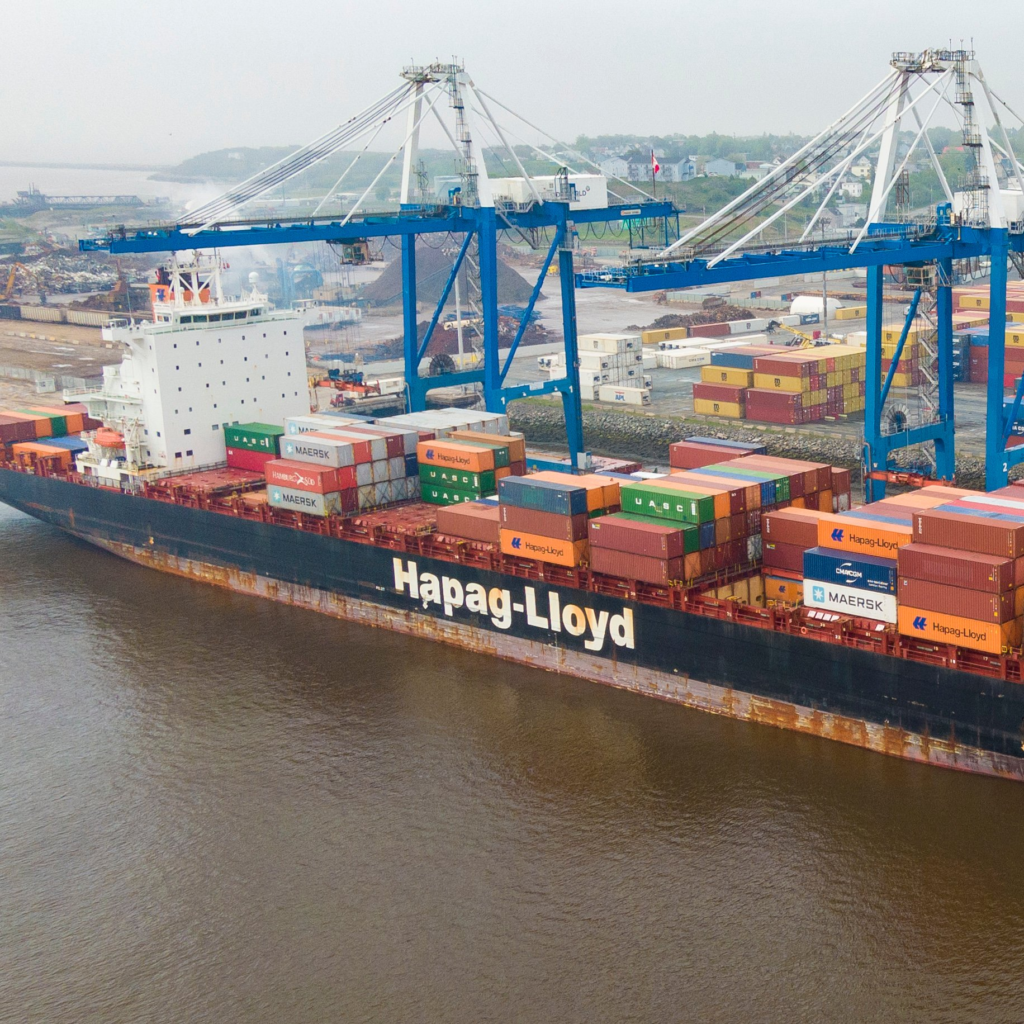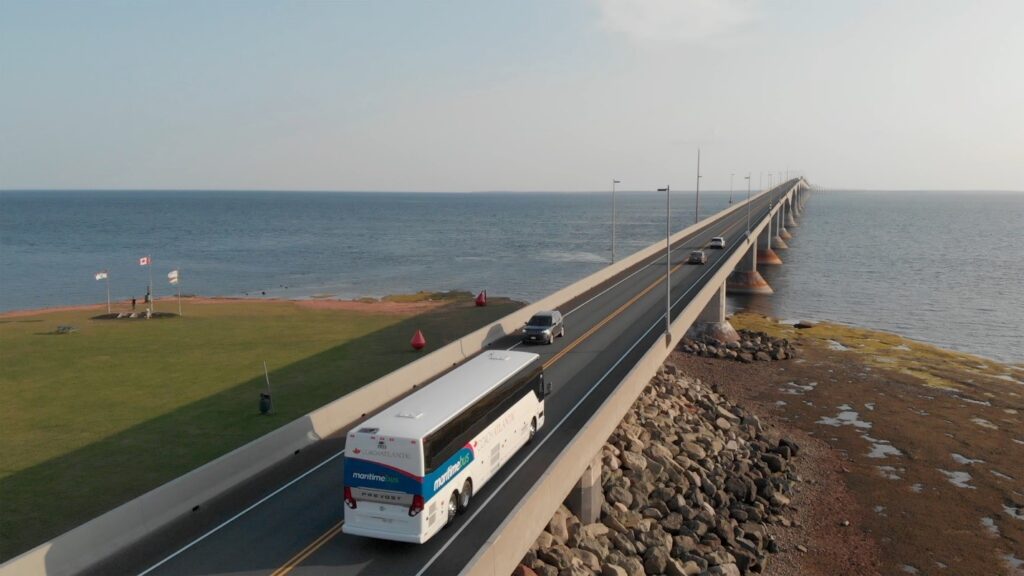Welcome to the August edition of Atlantic Transport News!
Here’s a look at what you’ll find in this edition:
- Nova Scotia election approaches, parties weigh in on transportation issues
- VIA’s Ocean returns after 17-month hiatus
- New ferry on the way for Marine Atlantic
- Intercity bus ridership starts to recover
- Airline schedules slowly increase as airports receive federal aid
NOVA SCOTIA ELECTION APPROACHES, PARTIES WEIGH IN ON TRANSPORTATION ISSUES
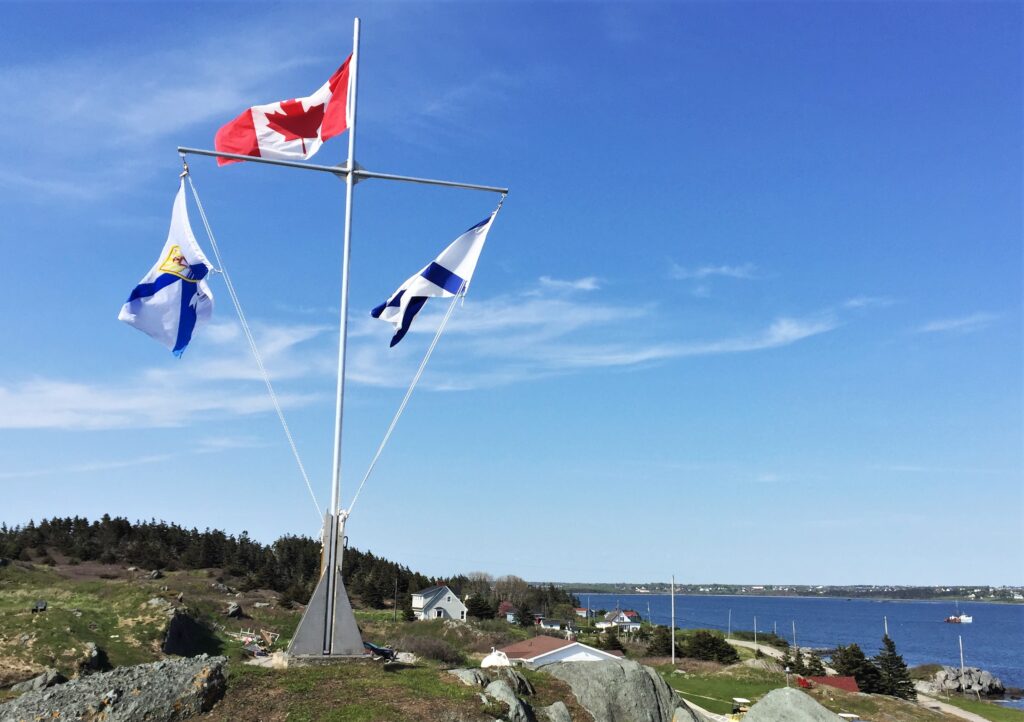
Polling day in Nova Scotia is fast approaching, and each of the parties continue to lay out their vision for the province should they have the opportunity to form government. As we have done consistently with other recent provincial elections throughout the region, TAA believes that it is important – and reasonable – to ask candidates of all political persuasion where they stand on the transportation issues we believe are important to the province and its future.
Earlier in the campaign, TAA submitted a series of six questions on key transportation issues to each of the major parties running in the election. Our goal has been to provide each of the parties with an opportunity to present their plan to our members and to anyone in the public who is concerned about these issues.
To date, we have received responses from the Nova Scotia NDP, Nova Scotia Liberal party, and the Green Party of NS. We have posted these responses in their entirety on our website, in the order that they were received. If we receive a response from the Progressive Conservative party before the election, we will add it to our post. Of course each party also has published platform documents, which we would encourage Nova Scotians to peruse for further information and context as they consider their vote.
You can view the Q&A here: https://transportactionatlantic.ca/ns-election-2021-questions-for-the-parties/
VIA RAIL’S OCEAN RETURNS AFTER 17-MONTH HIATUS
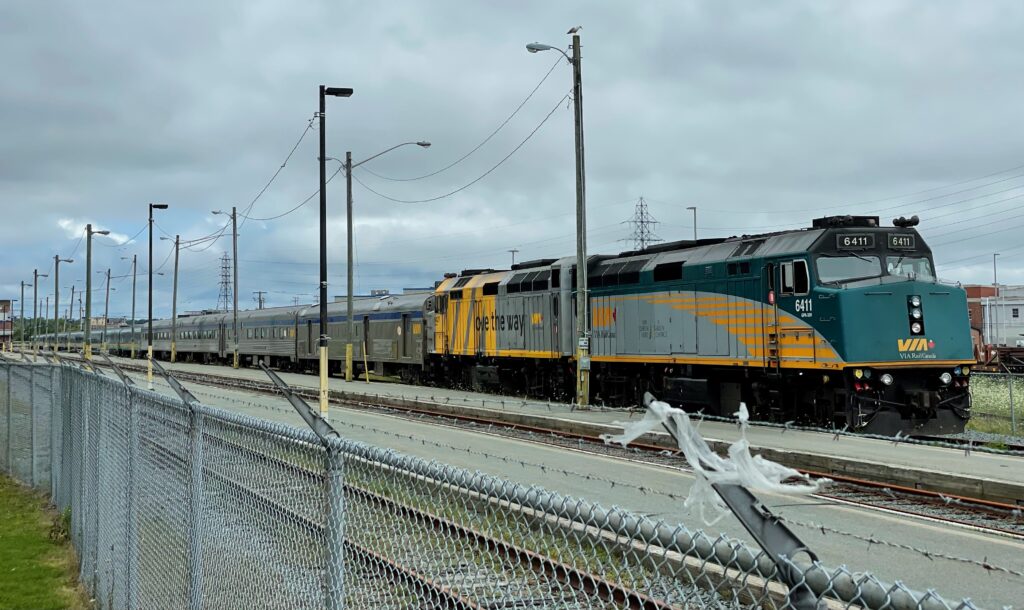
VIA Rail service in Atlantic Canada has resumed at long last, nearly 17 months after the COVID-19 pandemic forced an abrupt shutdown. With the Ocean back in operation between Halifax and Montreal, albeit on a reduced once-per-week schedule, the last major gap in VIA’s network has been restored to at least a basic level of operation. Early indications are that the trains are selling well, and there was a solid crowd boarding the first train in Halifax and at several stops along the way. VIA staff in Moncton had even prepared an impromptu celebratory greeting for this first train, and the Times and Transcript covered the event.
The warm welcome the train received reflects the ongoing interest from citizens along the route in having a train service that is available and that meets their needs for travel both within and beyond the region. While the return is welcome and long overdue, the initial once per week schedule is hardly adequate. We can certainly hope that VIA is serious about it’s talk of a gradual reintroduction of service, and that we will in fact see a return to the pre-pandemic service levels in October as currently indicated by VIA’s reservations system. Of course even this is far from adequate, and TAA continues to make the case for a daily service – but this will require significant investment, and continues to be an item that requires serious support from the federal government to bring to fruition.
The initial on board service offering remains restricted, due to ongoing COVID-19 concerns, with passengers required to wear masks except when eating, drinking, or in private cabins, and both economy and sleeper passengers confined to their respective seats or rooms. Food service is being provided by cart to economy passengers, and sleeping car meals are pre-packaged cold offerings being served to rooms. Despite the presence of dining and Renaissance service/lounge cars in the consist, these are not currently in operation. The timeline to resume fuller service is not clear, though it is of course dependent on the trajectory of the pandemic and related restrictions. With the news today that the federal government will soon be requiring vaccinations for all railway employees and passengers, with implementation expected by the fall, the on board experience may be able to resume some greater normality before too long.
The new bidirectional consist necessitated by the loss of the turning loop in Halifax has indeed resulted in the loss of the Park car. It remains possible that a Skyline dome/lounge could be added in the future, though with it serving no function at the present time where the lounge and dome would be off limits, it’s hardly surprising to see its absence from the initial trains. If no proper replacement for the Park car can be provided, the train will have lost one of its prime attractions for sleeper passengers.
On the bright side, the 1950s built stainless steel HEP1 coaches, last refurbished in the late 1990s, have finally received an overhaul, making for a much nicer on board environment for economy passengers. The Renaissance equipment in use has also seen the most notable refresh in years, with exterior paint touch ups, buffing, and waxing, and interior work to repair upholstery, carpets, and other interior components. These improvements are very much welcome; however, they don’t change the fact that both the HEP and Renaissance equipment, by VIA’s admission, are nearing the end of their serviceable life and a process to replace them needs to start sooner than later. Without adequate replacements, the long term prospects of both the Ocean and Canadian are in serious doubt.
-Tim Hayman
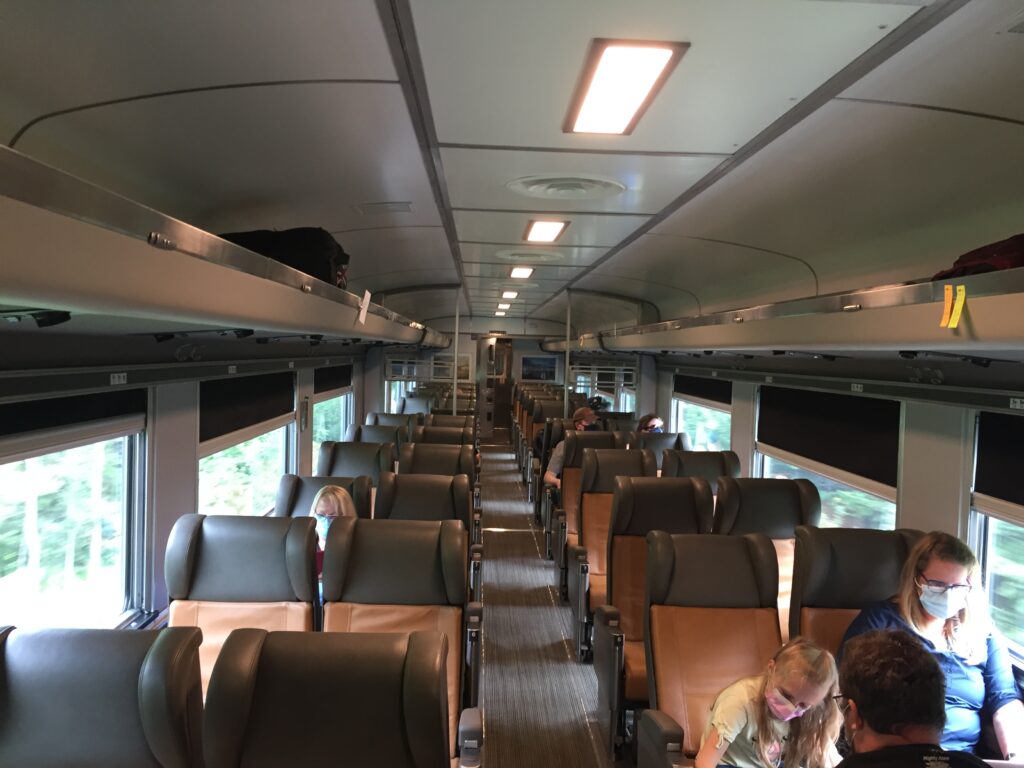
NEW FERRY ON THE WAY FOR MARINE ATLANTIC
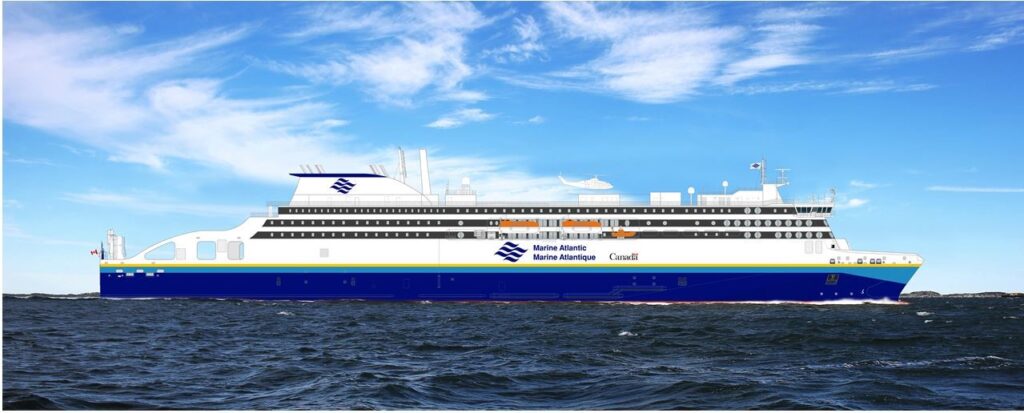
Marine Atlantic has announced a five-year charter agreement with Stena North Sea Ltd. to supply a new Ro-Pax vessel for its fleet. Following the initial agreement, Marine Atlantic will have an option to purchase the ferry. However the Crown corporation is under no obligation to exercise that option, and should the new ship not meet expectations it can simply be returned to the owners after the five years have elapsed.
The new vessel will offer energy efficient green ship technology, according to a media release issued on July 21. Its design will incorporate dual-fuel capability and will include batteries to further reduce its carbon footprint. The ship will be constructed with specific measures to reduce underwater noise, thereby reducing the impact on marine life. It will also offer enhanced power and thruster capability for maximum maneuvering ability during docking and undocking. This would appear to indicate that the challenges presented by the harbour at Port aux Basques will be specifically addressed in the design, as was the case with the purpose-built Caribou and Smallwood more than three decades ago.
The new ice-classed vessel will be just over 200 metres in length, about the same as the existing MV Blue Puttees and MV Highlanders, with the ability to carry similar numbers of commercial and passenger vehicles. It will incorporate the latest accessibility standards, carry up to 1000 people, have 146 passenger cabins (including pet friendly cabins), 40 passenger pods, a variety of food service options, seating lounges, a children’s play area, and a kennel for pets.
The ship will be compatible for use on both the Port aux Basques and Argentia routes and is expected to enter service in the 2024-25 fiscal year.
In Budget 2019, the Government of Canada provided funding for Marine Atlantic to replace an existing vessel. The corporation launched a request for qualifications (RFQ) in July 2019, with successful bidders moving to an RFP stage in June 2020.
-Ted Bartlett
INTERCITY BUS RIDERSHIP STARTS TO RECOVER
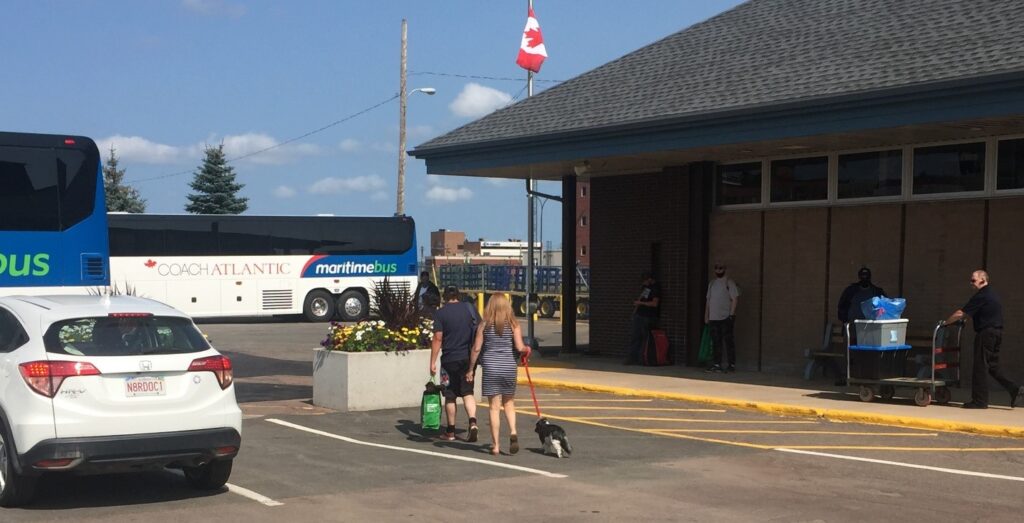
The essential service that Maritime Bus founder Mike Cassidy refers to as “public transit on provincial highways” is showing some signs of recovery with the reopening of the Atlantic Bubble. Maritime’s coaches continue to operate six days a week (daily except Saturday), with all communities on its route map being served on a limited schedule. However, there’s no indication as to if or when it might again be possible to ride the bus further than Edmundston, or to ship a package to points in Quebec or beyond. Mr. Cassidy says there’s been no action on restoring the interlining agreement with pre-pandemic partner Orleans Express.
Ridership figures were very low in early July, but improved as border restrictions among the Atlantic provinces were eased. Mr. Cassidy anticipates a daily average of 275 passengers in August, with his coaches logging about 5000 km per day compared to the pre-COVID full schedule of 10,000.
He adds that there’s still no indication that Ottawa’s Rural Transit Fund is going to offer any relief for struggling commercial carriers such as Maritime Bus and Newfoundland’s DRL coachlines. Neither is there any indication that the federal government is prepared to assume any form of leadership role in ensuring the restoration of a coast-to-coast network for passengers and parcels.
“Passion and a commitment to busing has allowed me to persevere through these trying COVID times,” he says. “We can never lose sight of the importance of an intercity bus service within the Maritimes moving passengers and time sensitive parcel freight.”
Meanwhile, DRL’s owner Jason Roberts tells Transport Action Atlantic that his company has lost over $1.3 million since the start of the pandemic, and although the COVID threat has subsided for now, he doubts he can maintain the service in its current form for much longer. He does have some hope that the provincial government will come through with some sort of assistance package. The federal government has an implicit obligation to ensuring continuing trans-island bus service, but to date has shown no sign that it is considering honouring that commitment.
-Ted Bartlett
AIRLINE SCHEDULES SLOWLY INCREASE AS AIRPORTS RECEIVE FEDERAL AID
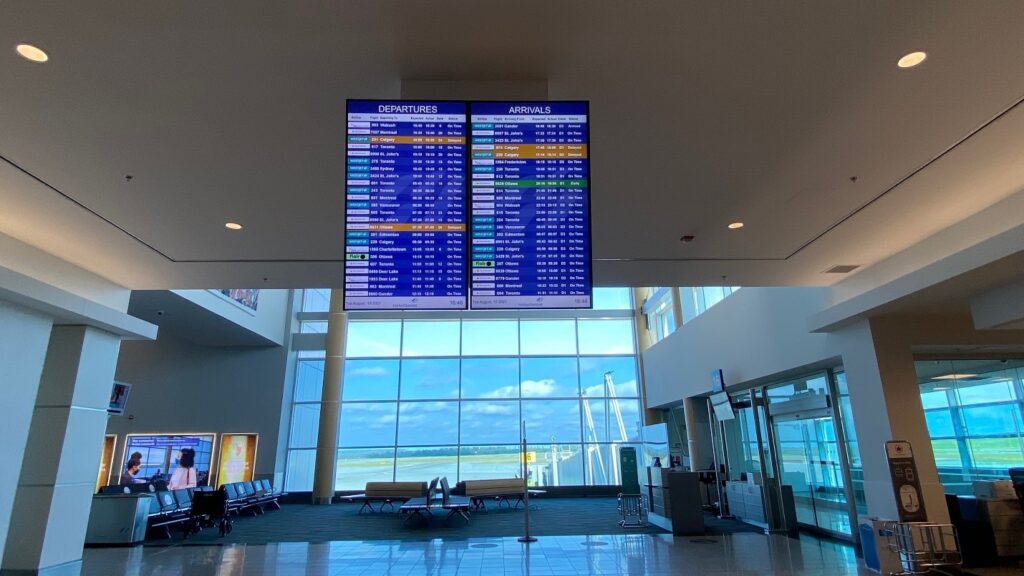
The long-term future of commercial air travel to, from and within Atlantic Canada remains an unknown as air carriers gradually increase their service levels in the region. Meanwhile, the Government of Canada has stepped in to assist regional airport authorities that faced massive revenue losses during the pandemic, and are continuing to feel the pinch as travel slowly rebounds.
The latest federal funding package was announced on August 9 – an $11.8 million contribution to the bottom line of St. John’s International Airport (YYT) under the Regional Air Transportation Initiative. Airport CEO Peter Avery said the funding would help in the recovery effort, and allow the facility to remain competitive. Earlier contributions under the initiative included $3.8 million each for Saint John (YSJ) and Fredericton (YFC), $3.1 million each for Charlottetown (YYG) and Deer Lake (YDF), $2.7 million for Sydney (YQY), and $2.4 million for Gander (YQX). Moncton airport (YQM) received a lesser amount to offset its operational losses, but was awarded over $5 million for capital improvements.
The number of flights in the region operated by Air Canada and WestJet is gradually increasing, but it is still nowhere near pre-pandemic levels. Meanwhile, Porter Airlines – in full hibernation since March of 2020 – will be returning to Atlantic Canadian skies in the first half of September.
Air Canada has not indicated any plans to resume most of its short-haul services in the region, with PAL Airlines filling some of the void, but on a much lower frequency. PAL has also commenced its promised service to Ottawa from St. John’s and Deer Lake, stopping at Moncton or Fredericton on alternate days.
The region’s largest and busiest airport, Halifax Stanfield, remains “international” in name only for the time being, although as of August 9 it is permitted to once again accommodate US and overseas departures. Spokesperson Tiffany Chase tells TAA that Condor Airlines is planning to offer a short fall seasonal service to Frankfurt from September 9 to November 4. There is some suggestion that US flights might resume in October, but there’s no indication yet as to plans for overseas operations to or from YHZ by either Air Canada or WestJet. She was optimistic they might resume in 2022.
As of early August, Stanfield was handling a daily average of 50-60 arrivals and departures carrying between 3000 and 4000 passengers, compared with pre-pandemic levels of 200 daily flights accommodating 11-12 thousand people. Currently flights to and from YHZ are serving only 16 destinations, compared to 46 pre-COVID.
-Ted Bartlett
